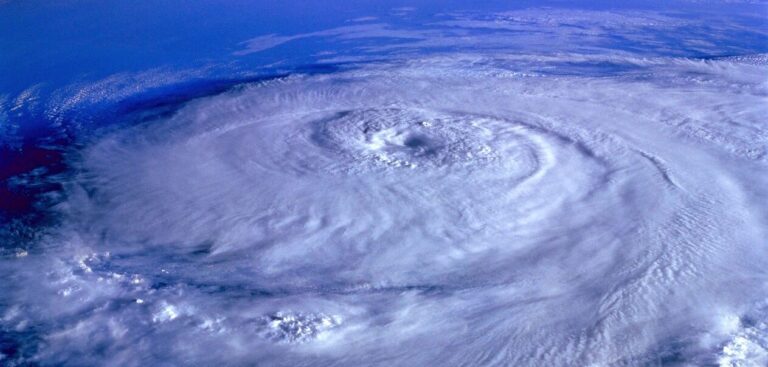Researchers at the US Department of Energy’s Pacific Northwest National Laboratory (PNNL) have warned that warming environmental conditions will lead to the Atlantic Coast quickly becoming an even greater breeding ground for rapidly intensifying hurricanes.
With climate change as a root contributor, the new research finds that hurricanes are growing wetter and strengthening more quickly near the already hurricane-battered coastline.
Looking at data from the last four decades of hurricane activity, and the conditions that shaped them, researchers found that the rates at which hurricanes strengthen near the US Atlantic Coast have climbed since 1979. The team found that this trend is likely to continue with a warming climate.
According to Karthik Balaguru, team lead for coastal modeling at PNNL, a warmer world is poised to bring hurricanes that intensify more quickly and lead to a heightened risk of flooding on the Atlantic Coast. “Our findings have profound implications for coastal residents, decision makers and policy makers,” he said. “And this isn’t specific only to the Atlantic. It’s happening in several prominent coastal regions across the world.
Balaguru’s team found that a unique coastal phenomenon lies at the heart of the bustling hurricane activity. A mix of environmental conditions caused by this phenomenon ultimately makes the coastline more conducive to hurricane development.
The same mix of hurricane-favoring conditions does not appear in the Gulf of Mexico, which the team also explored. But they could form in many other regions, including those near the East Asian coastline and the northwest Arabian Sea.
Ruby Leung, an atmospheric scientist at PNNL and co-author of the report, said that as GHG emissions rise, the temperature difference between warmer land and cooler sea grows more and more divergent. “Unlike the ocean with unlimited water supply, there’s much less water in soil. That means the land can’t evaporate as much water, so it can’t get rid of the extra heat trapped by greenhouse gases as quickly as the ocean.”
According to the researchers, global maps depicting past and future warming show a distinct pattern of land warming more than the sea, and this increasingly strong difference can create stronger storms.
The new study describes unique, hurricane-favoring conditions that come about due to this difference in warming. Over the warmer land, air pressure is lower; over the cooler sea, air pressure is relatively higher. The higher-pressure air blows inland toward those warmer, lower-pressure areas.
Earth’s rotation guides these winds in a cyclonic, twisting direction. This spinning strengthens something called ‘vorticity’, a spinning motion of air that, in this case, happens in the lowest level of Earth’s atmosphere.
This twisting motion pulls humid air near Earth’s surface up into the atmosphere. Hurricanes are often described as ‘heat engines’, continually sucking up warm, moist air and converting its energy into damaging winds. That energy comes in part from the condensation of water vapor.
As moist air rises inside the hurricane’s core and cools toward the top, water vapor condenses and emits heat. The heat warms nearby air, causing it to ascend further. This process invigorates the storm.
Add greenhouse gases that warm the land even more, said Leung, and you strengthen this twisting motion that pulls humid air up. A warmer sea surface, also a product of climate change, adds even more humidity.
Vertical wind shear, however, can throw a wrench into the ‘heat engine’ by injecting dry air into the storm’s core, robbing the hurricane of heat and moisture. But Balaguru’s team found that this negating force has weakened on the US Atlantic Coast over the past four decades, adding to the problem.
“The nearshore environment has absolutely become more favorable for hurricanes near the Atlantic Coast, and that’s very consistent with the rising hurricane intensification we’ve observed in the region,” said Balaguru.
To read the full study published in the AGU journal Geophysical Research Letters, click here.



